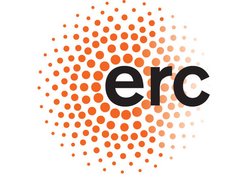Max Planck success in EU funding
20 Max Planck researchers win ERC Starting Grants
In the most recent call for proposals for the ERC Starting Grants, the Max Planck Society was once again successful, scooping up a total of 20 grants. Only the French CNRS was more successful, receiving 25 grants. With a success rate of almost 30 percent, applications from the Max Planck Society were more than twice as successful as the average.

ERC Starting Grants are awarded to early-career researchers of any nationality with two to seven years of experience since completion of the PhD. The funds are aimed at supporting the scientists in building their own teams and embarking on an independent career. The projects are evaluated in a two-stage peer review process by independent experts. The sole selection criterion is scientific excellence. Of a total of 3106 applications submitted, 408 were approved throughout Europe. This corresponds to a success rate of 13.1 percent.
In a European comparison, the Max Planck Society ranks second behind the CNRS. The Swiss Federal Institute of Technology Zurich (ETH) received 15 grants, the universities of Oxford and Cambridge ten and eight, respectively. Other successful German institutions are the Ludwig Maximilian University of Munich with ten grants, the Helmholtz Association and the Technical University of Munich as well as the Leibniz Association with three grants each.
With an approval rate of 40 percent, the Humanities and Social Sciences Section performed particularly well in this call for proposals (with a total of 15 applications submitted). The Biology and Medicine Section had a success rate of 42 percent (for a total of 19 applications – including one from the Ernst Strüngmann Institute). And the Chemistry, Physics and Technology Section achieved a success rate of 17 percent (out of a total of 29 applications submitted).
The following Max Planck scientists were awarded ERC Starting Grants:
Chemistry, Physics & Technology
- Karl Bringmann, MPI for Informatics
- Josep Cornellà, MPI für Kohlenforschung
- Andreas Geiger, MPI for Intelligent Systems, Tübingen
- Markus Heyl, MPI for the Physics of Complex Systems
- Susanne Mertens, MPI for Physics
- Guillaume Salomon, MPI for Quantum Optics
Biology & Medicine
- Damien Farine, MPI for Animal Behaviour
- Henning Fenselau, MPI for Metabolic Research
- *Christian Hilbe, University of Vienna, expected to change his hosting institution to the MPI for Evolutionary Biology, Plön
- Moritz Kreysing, MPI for Molecular Cell Biology and Genetics
- Javier Lopez Garrido, MPI for Evolutionary Biology
- Lena Pernas, MPI for the Biology of Ageing
- Jane Reznick, MPI for the Biology of Ageing*
- Friedhelm Serwane, MPI for Medical Research*
- Martin Vinck, Ernst Strüngmann Institute (ESI)
Humanities & Social Sciences
- Pavel Grigoriev, MPI for Demographic Research
- Patrick Roberts, MPI for the Science of Human History
- Stephan Schiffels, MPI for the Science of Human History
- Nicolas Schuck, PI for Human Development
- Michael Artur Skeide, MPI for Human Cognitive and Brain Sciences
- Robert Spengler, MPI for the Science of Human History
* Presumably change with the grant to another scientific institution.












